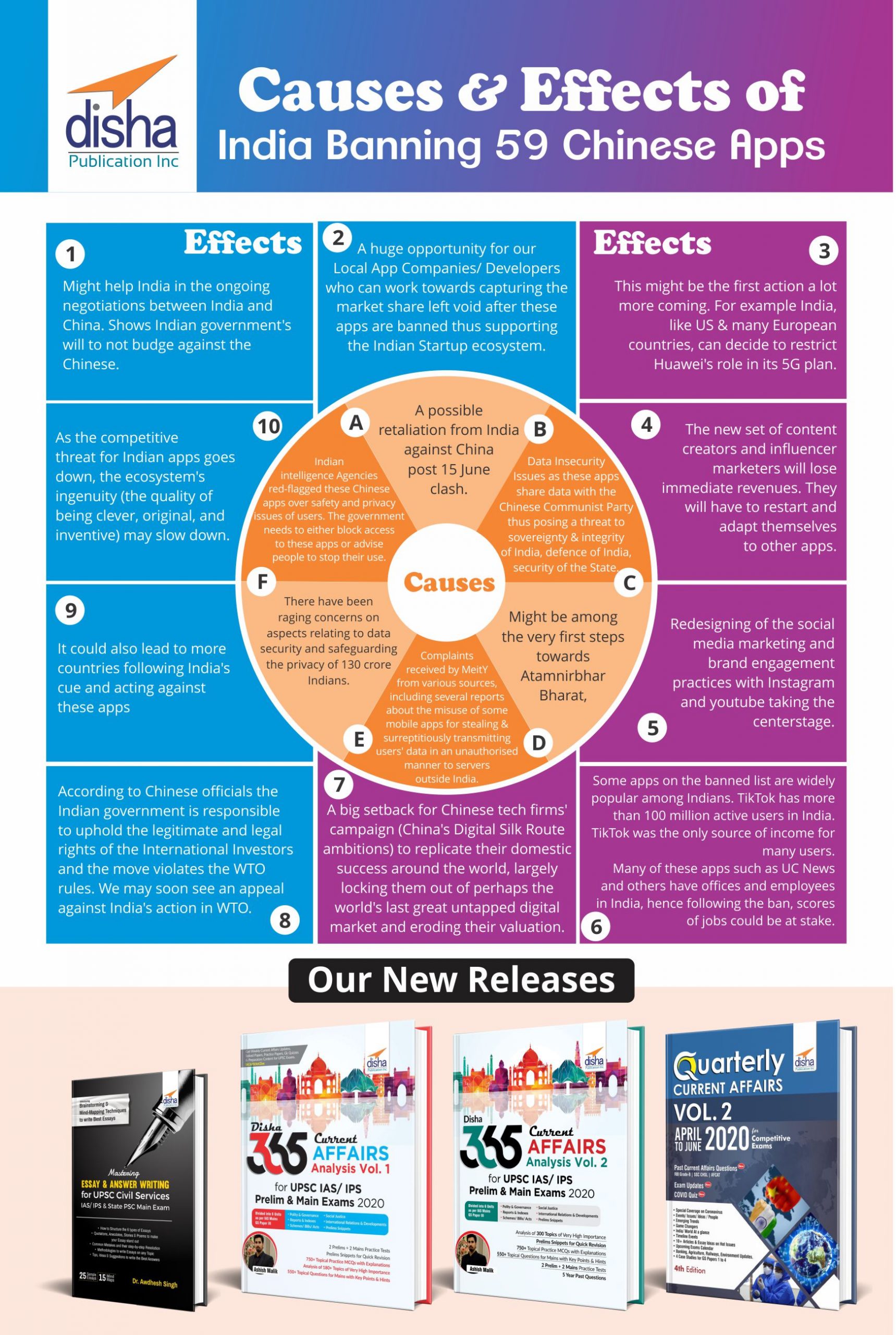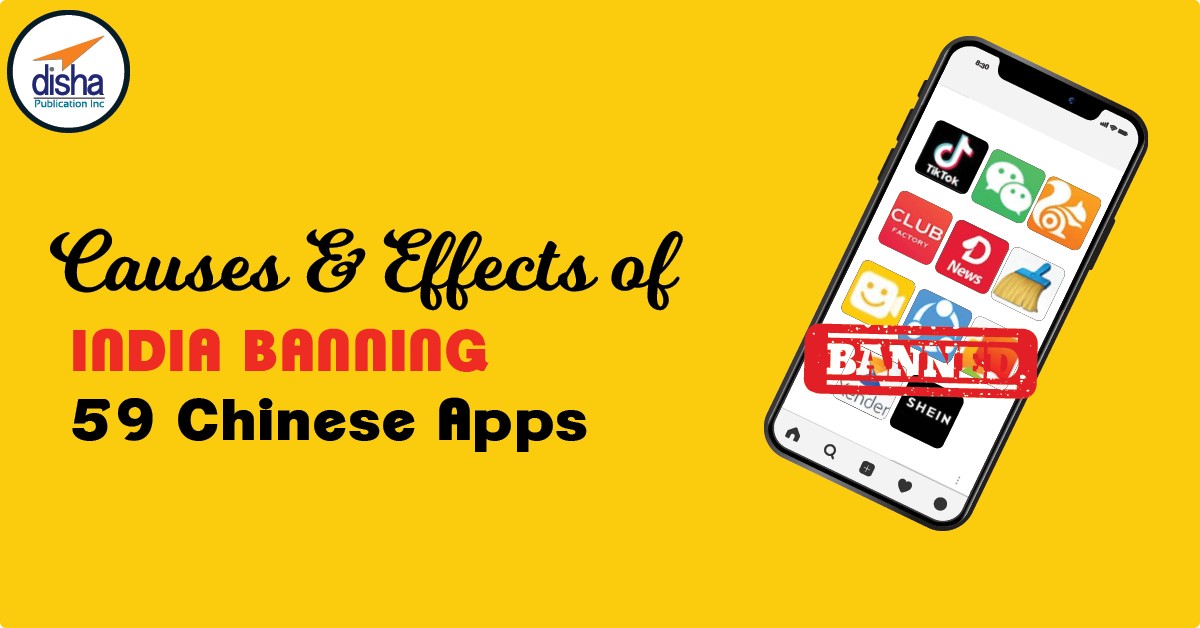The Government of India Announced an Interim Ban on 59 Chinese Mobile Applications
The government of India announced an interim ban on 59 Chinese mobile applications amid border stand-off with the neighbouring country to counter the threat posed by these applications to the country’s sovereignty and security. The ban covers some of the most popular mobile applications like TikTok, ShareIt, CamScanner, UC browser, and shopping apps like Shein and Club Factory. These apps together command over several hundred million users in India having a significant presence in revenue of the country.
Relations between India and China have been strained following the deaths of 20 Indian troops in a stand-off in Ladakh’s Galwan Valley on June 15, 2020. Since then Indian intelligence agencies had been trying to restrict the mobile applications on grounds that the apps were designed to extract our data and park them outside the country, intruding into the privacy of Indian citizens. However, looking at the positive side this step can prove to be a golden moment for ‘Made in India’ Start-up applications which rarely get an opportunity to get users on board with its valuable services.

Cause
- A possible retaliation from India against China post 15 June clash.
- Data Insecurity Issues as these apps share data with the Chinese Communist Party thus posing a threat to sovereignty & integrity of India, defence of India, security of the State.
- Might be among the very first steps towards Atamnirbhar Bharat
- Complaints received by MeitY from various sources, including several reports about the misuse of some mobile apps for stealing & surreptitiously transmitting users’ data in an unauthorised manner to servers outside India.
- There have been raging concerns on aspects relating to data security and safeguarding the privacy of 130 crore Indians.
- Indian intelligence Agencies red-flagged these Chinese apps over safety and privacy issues of users. The government needs to either block access to these apps or advise people to stop their use.
Effects
- Might help India in the ongoing negotiations between India and China. Shows Indian government’s will to not budge against the Chinese.
- A huge opportunity for our Local App Companies/ Developers who can work towards capturing the market share left void after these apps are banned thus supporting the Indian Startup ecosystem.
- This might be the first action a lot more coming. For example India, like US & many European countries, can decide to restrict Huawei’s role in its 5G plan.
- The new set of content creators and influencer marketers will lose immediate revenues. They will have to restart and adapt themselves to other apps.
- Redesigning of the social media marketing and brand engagement practices with Instagram and youtube taking the centerstage.
- Some apps on the banned list are widely popular among Indians. TikTok has more than 100 million active users in India. TikTok was the only source of income for many users. Many of these apps such as UC News and others have offices and employees in India, hence following the ban, scores of jobs could be at stake.
- A big setback for Chinese tech firms’ campaign (China’s Digital Silk Route ambitions) to replicate their domestic success around the world, largely locking them out of perhaps the world’s last great untapped digital market and eroding their valuation.
- According to Chinese officials the Indian government is responsible to uphold the legitimate and legal rights of the International Investors and the move violates the WTO rules. We may soon see an appeal against India’s action in WTO.
- It could also lead to more countries following India’s cue and acting against these apps
- As the competitive threat for Indian apps goes down, the ecosystem’s ingenuity (the quality of being clever, original, and inventive) may slow down




